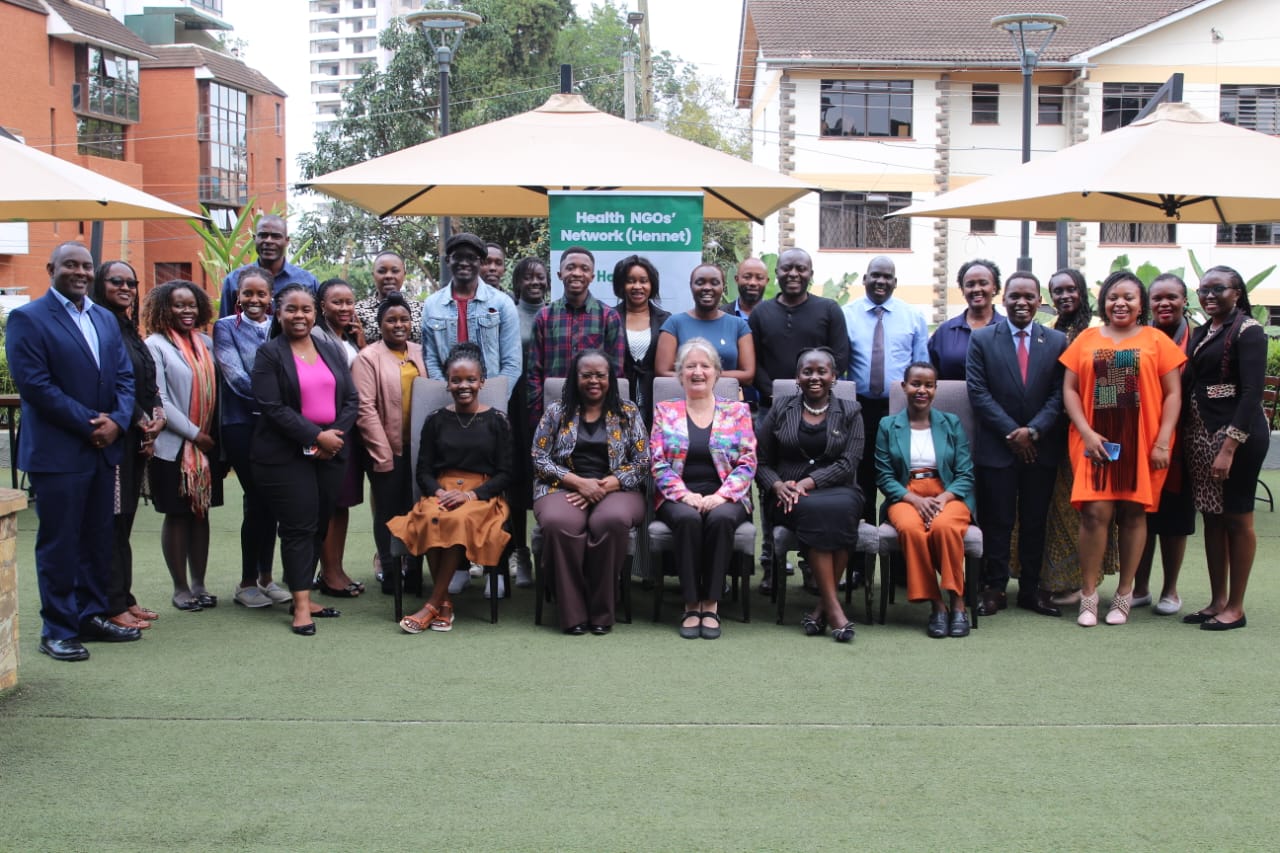
The Government of Kenya’s commitment to women’s, children’s, and adolescents’ health is evidenced by a range of international, regional, and national commitments, legislation, and policy such as Family Planning 2030 (FP2030), International Conference on Population and Development +25 (ICPD+25), The Primary Health Care Bill (2023), National Reproductive Health Policy 2022 – 2032, and recently the co-sponsorship of the landmark 2024 World Health Assembly resolution on accelerating the Sustainable Development Goals related to maternal, newborn and child health.
Like many countries, however, despite national commitments and a generally supportive policy environment, critical gaps in maternal, newborn, and child health, sexual reproductive health and rights, and adolescent health and well-being remain.
Within this context, the Health NGO Network (HENNET), in collaboration with Aga Khan University’s Centre of Excellence in Women and Child Health and PATH, convened a multi-constituency dialogue on advancing national commitments for women’s, children’s, and adolescents' health. The meeting served as a launching point for PMNCH’s Collaborative Advocacy Action Plan (CAAP) initiative in Kenya, coordinated by HENNET.
To ensure improved health and rights of women, children, and adolescents, Senator Catherine Muyeka Mumma called on the multi-sectoral audience to engage strategically in legislative processes and budgetary review. Through tactical engagement in legislative processes, measured progress in health can be achieved.
In candid conversations on adolescent pregnancy and well-being, menstrual health, and the need for explicit adolescent indicators, the Senator urged partners to ensure the health and rights of all adolescent girls in Kenya, “We must insist that adolescent girls are human beings.”
Rosemarie Muganda, the board chair of HENNET reiterated the need to accelerate efforts towards meeting the set global and national maternal newborn and child health targets including urgently addressing maternal mortalities, child mortalities among other RMNCAH indicators that are lagging behind.
Prof. Marleen Temmerman, Director of the Centre of Excellence in Women and Child Health at Aga Khan University and PMNCH Board Member presented findings from a national scoping and assessment report on commitments to women’s, children’s, and adolescents’ health. The report highlighted gaps and recommendations to advance national targets and the Sustainable Development Goals.
Reflecting on the importance of broad prioritization and whole-of-government approaches to accelerate women’s, children’s, and adolescents’ health, Marleen drew on lessons from Kenya’s COVID-19 response.
"Why was the COVID-19 response so successful? Because it was an emergency identified by all corners of government and all organizations."
Amongst the multi-constituency group of non-governmental organizations, adolescent and youth-led organizations, donors and foundations, academic training institutes, and global financing mechanisms, there was overwhelming agreement that greater efforts are required to address maternal mortality, adolescent access to sexual reproductive health services and commodities, harmful cultural practices, quality of care, and health systems strengthening and financing.
Through plenary contributions, partners echoed Senator Mumma’s sentiments on the need for coordinated advocacy, communication, and collaboration – key pillars foundational to the CAAP initiative. Partners encouraged innovation in their strategic approach and stressed the importance of engaging all constituencies and community members including parliamentarians, members of the interfaith community, healthcare workers, and men.
The meeting also launched Kenya’s Digital Advocacy Hub, which provides a digital platform for multi-sectoral engagement, resources, and engagement.
Participants' contributions from the 14 August 2024 meeting will shape Kenya’s Collaborative Advocacy Action Plan. Advocacy goals identified in the plan will be presented at Kenya’s national Reproductive, Maternal, Newborn, Child and Adolescent Health+ Nutrition multistakeholder country platform (RMNCAH+N MCP) and feed into the ongoing developments of Kenya’s second RMNCAH Investment Framework.

.png?sfvrsn=6d0e27cd_1)



